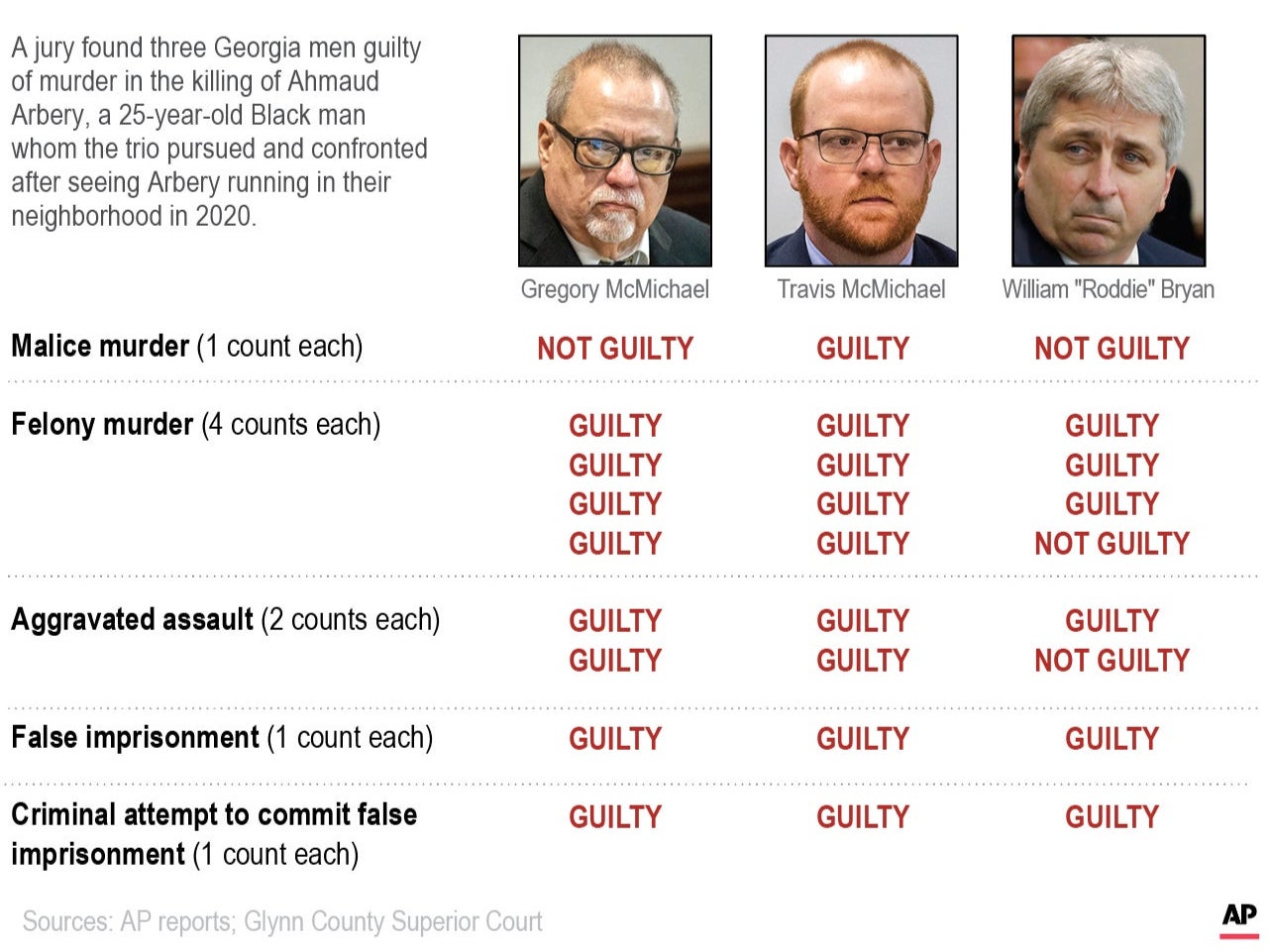Ahmaud Arbery: What is ‘malice murder’?
Malice murder is the most serious charge an individual can face in the state of Georgia
The three white men who hunted down and killed 25-year-old Ahmaud Arbery in Georgia last year have all been found guilty of murder.
Father and son Greg McMichael, 65, and Travis McMichael, 35, and their neighbor William “Roddie” Bryan, 52, faced the same nine criminal charges: one count of malice murder, four counts of felony murder, two counts of aggravated assault, one count of false imprisonment and one count of criminal attempt to commit a felony. The men pleaded not guilty to all their charges. Only the younger McMichael was found guilty of malice murder.
But what is “malice murder” in Georgia and how is it different from a felony murder charge?
In Georgia, malice murder is the most serious charge the state can levy against an individual.
Under Georgia law, malice murder is defined as the “deliberate intention unlawfully to take the life of another human being” in which “no considerable provocation appears” where the killer shows “an abandoned and malignant heart”.

It is essentially equivalent to a first-degree murder charge in other states; it implies intention and will to take another person's life.
Sentences for malice murder can result in life in prison without the possibility for parole or the death penalty via lethal injection.
Felony murder, on the other hand, can be charged to individuals who did not actually kill anyone, but committed felonies that resulted in a death.
In Mr Arbery's case, neither the elder McMichael nor Bryan actually pulled the trigger. The younger McMichael was the one who actually shot and killed Mr Arbery with a shotgun. However, because the other two men committed felonies – aggravated assault – that led to Mr Arbery's death, they were charged with felony murder.
Prosecutors said they intend to seek life in prison without the possibility of parole for all three defendants.
Mr Arbery was shot and killed while he was running through the Satilla Shores neighborhood in Georgia on 23 February, 2020. The McMichaels saw him and chased him in a Ford F-150 truck, claiming they thought he was the culprit of a recent string of thefts. Bryan later joined the men in the chase in his own truck.
Eventually the men caught up with Arbery, and the younger McMichael approached him with his shotgun. A struggle ensued, resulting in the younger McMichael shooting Mr Arbery with the shotgun, killing him.
Mr Arbery's family described the killing as a “modern day lynching”, and the case was viewed broadly in the public as a case of racially motivated killing.
Though the state trial did not focus on the possible racial angles of the killing, a federal hate crimes trial next year will focus on whether or not the three white men committed a hate crime when they hunted and killed Arbery.
The defense team representing the three men claimed the McMichaels were trying to execute a citizens' arrest when they approached Arbery, and that the younger McMichaels was scared for his life when the two men fought. The defense was trying to build a self-defense argument for the three men, similar to the argument that spared Kenosha, Wisconsin shooter Kyle Rittenhouse from a guilty verdict just a week prior.
Prosecutors pushed back against that argument, claiming Mr Arbery was not shot because he was attacking the men, but because he refused to stop and talk to them.
Bookmark popover
Removed from bookmarks